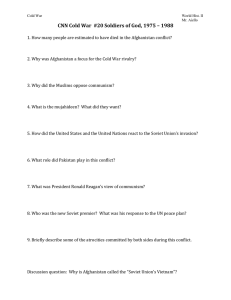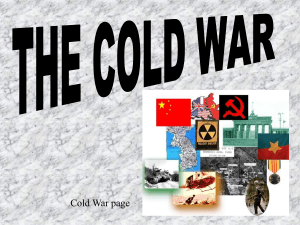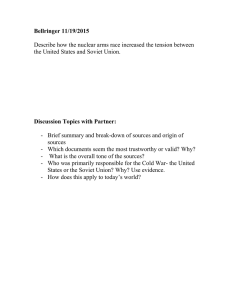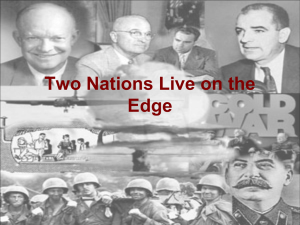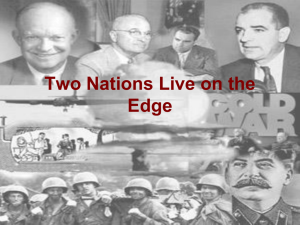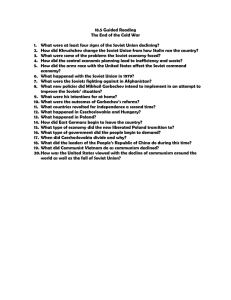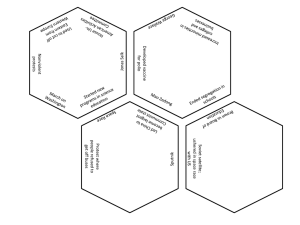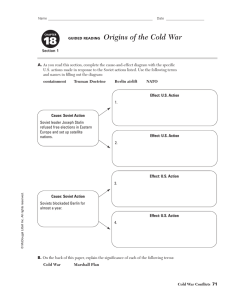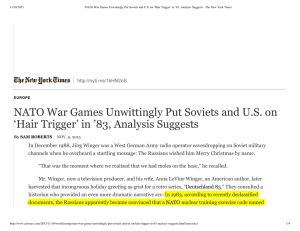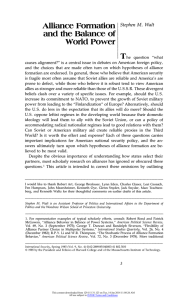The Early Cold War Part I – Europe
advertisement
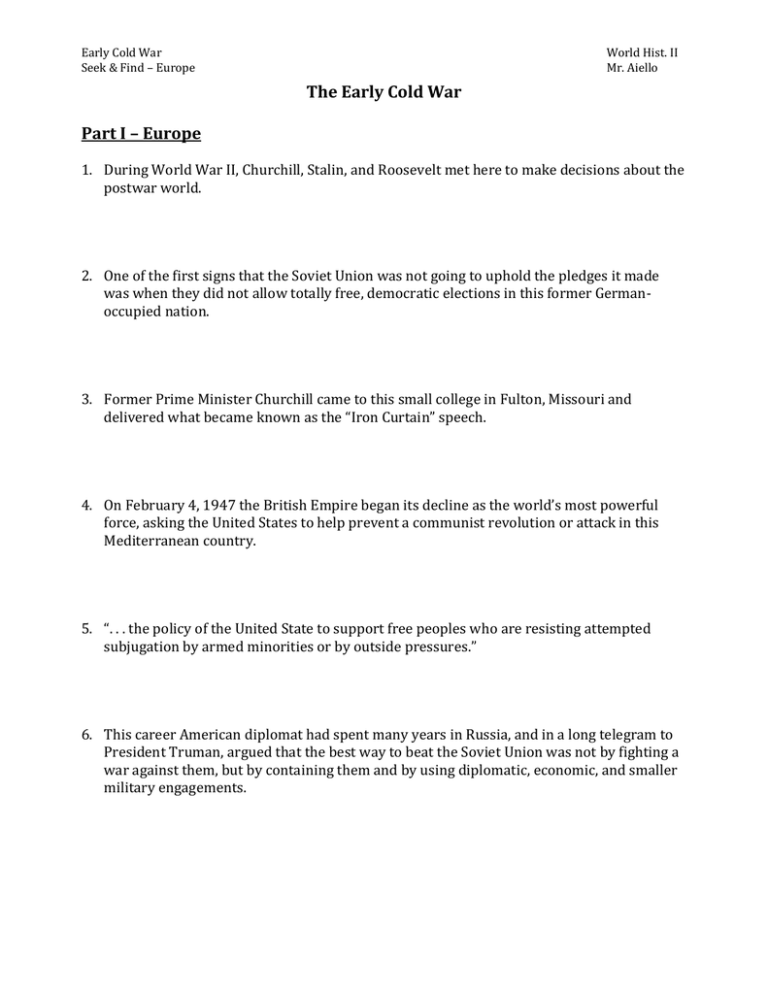
Early Cold War Seek & Find – Europe World Hist. II Mr. Aiello The Early Cold War Part I – Europe 1. During World War II, Churchill, Stalin, and Roosevelt met here to make decisions about the postwar world. 2. One of the first signs that the Soviet Union was not going to uphold the pledges it made was when they did not allow totally free, democratic elections in this former Germanoccupied nation. 3. Former Prime Minister Churchill came to this small college in Fulton, Missouri and delivered what became known as the “Iron Curtain” speech. 4. On February 4, 1947 the British Empire began its decline as the world’s most powerful force, asking the United States to help prevent a communist revolution or attack in this Mediterranean country. 5. “. . . the policy of the United State to support free peoples who are resisting attempted subjugation by armed minorities or by outside pressures.” 6. This career American diplomat had spent many years in Russia, and in a long telegram to President Truman, argued that the best way to beat the Soviet Union was not by fighting a war against them, but by containing them and by using diplomatic, economic, and smaller military engagements. Early Cold War Seek & Find – Europe World Hist. II Mr. Aiello 7. Because of the desperate situation in much of Western Europe, the American Secretary of State offered economic aid to any and all European countries that agreed to trade and economically cooperate with each other. Eventually, 12.5 billion dollars of aid was given to 16 Western nations because of this program. 8. When the British, French, and American governments decided to combine their sectors of Germany into one large country, the Soviets responded by closing off this capital city, located well within their eastern section of Germany. Eventually, the three western allies decided to supply this capital by flying in supplies for almost a full year. 9. By the winter of 1949, most of the western nations now realized that the Soviet Union was not going to live up to its pledges, and planned on keeping its “control” of eastern Europe, and actually wished to expand its influence and control. Therefore, this new military alliance was formed for the express purpose of common protection against the expansion attempts of the Soviet Union. 10. The Soviets responded to the new, western military alliance system with its own military alliance system.

